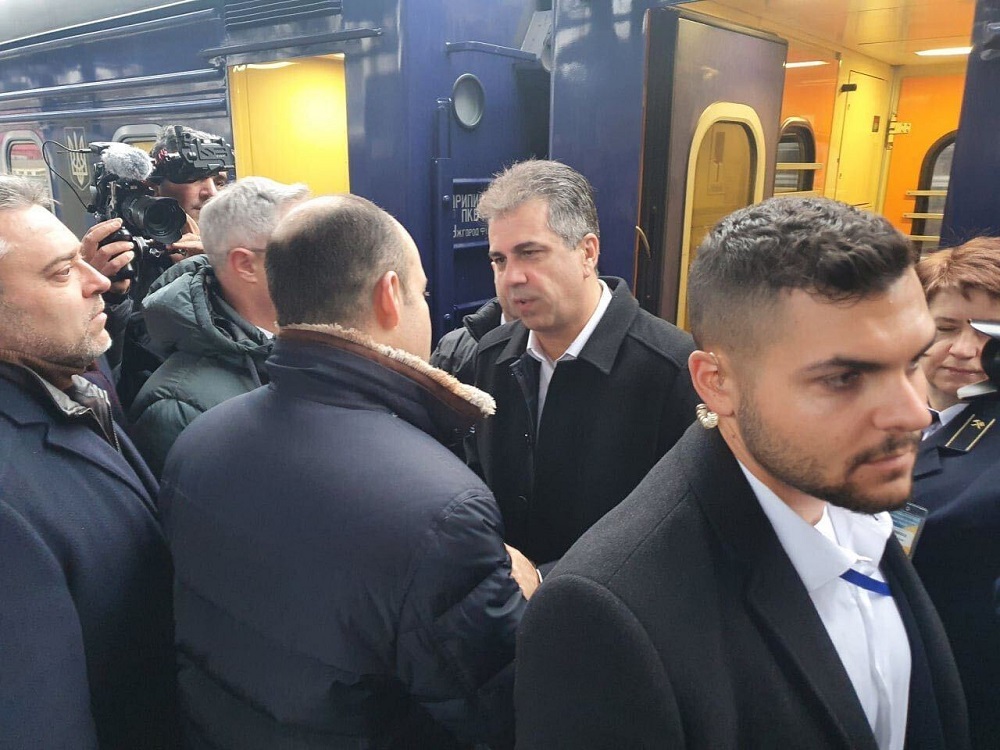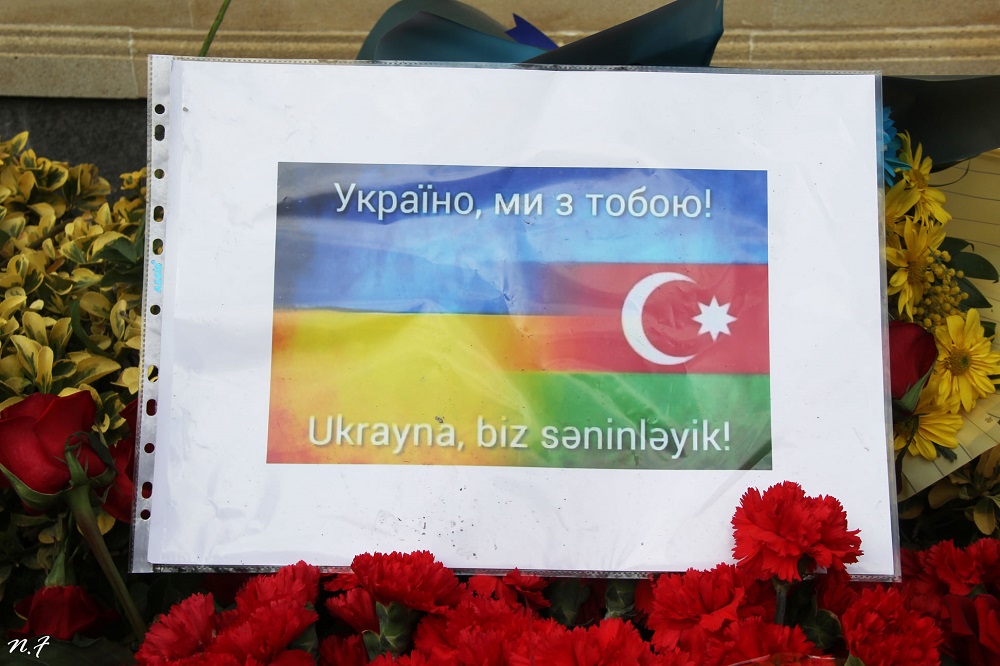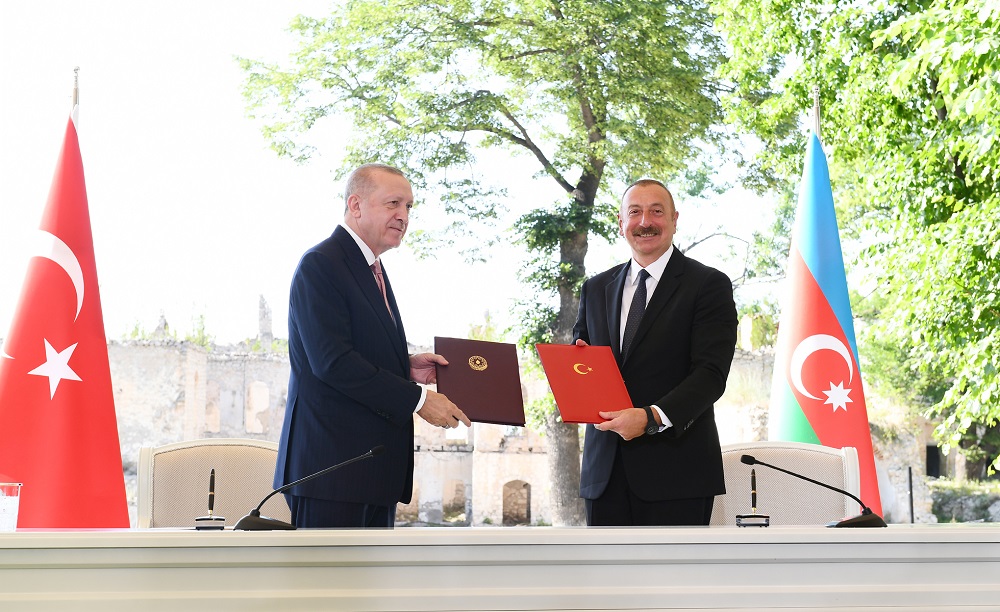Zelensky calls Aliyev. Comment from Baku
Zelensky’s phonecall with Aliyev
The President of Ukraine called his Azerbaijani counterpart and thanked him for supporting the country’s territorial integrity. The men also discussed the issue of cooperation in international platforms.
- Movement for release of Nika Gvaramia, imprisoned opposition journalist
- Outcome of the meeting of the Foreign Ministers of Armenia and Turkey
- Baku on rapprochement between Yerevan and Ankara
On February 15, Ukrainian President Volodymyr Zelensky called Azerbaijani President Ilham Aliyev.
“During a phone call, the President of Ukraine expressed gratitude to President Ilham Aliyev for supporting the territorial integrity and sovereignty of his country and for providing humanitarian assistance.
During the conversation, the heads of state also discussed the issue of cooperation on international platforms,” the press service of the President of Azerbaijan said in a statement.
On the eve of an important visit
Israeli Foreign Minister Eli Cohen arrived in Kyiv this morning to meet with Zelensky, the first visit by a high-ranking Israeli official to Ukraine since the start of the war.
There could be a link between the phone call and this visit, Azeri political commentator Haji Namazov says:
“I would like to draw your attention to the fact that almost immediately after Zelensky called Aliyev, Israeli Foreign Minister Eli Cohen arrived in Kyiv. Maybe it happened by chance, but I think they’re connected.

Everyone knows that the Turkey-Israel-Azerbaijan axis is one of the most powerful in the region the past few years. And the two presidents could discuss some aspects of this visit.
But even if these events are not connected in any way, this telephone conversation is significant for several reasons.”
Support for territorial integrity
“From the first day of its independence, Azerbaijan has stood for the steadfastness of the principle of the territorial integrity of countries. And in this position, the country is pursuing a completely straightforward policy.
Thus, Azerbaijan has always stood for the territorial integrity of Georgia, Ukraine, Moldova — countries that are not friendly to the Kremlin’s policy. But at the same time, Baku supports the territorial integrity of Serbia and still does not recognize the independence of Kosovo, although many Western countries have done so.
In other words, Azerbaijan cannot be accused of supporting some international forces. This principle is observed in all cases. Here the most important point is the issue of the territorial integrity of Azerbaijan itself, which is also supported by almost all countries of the world,” Namazov believes.
Alliance with Russia is not a hindrance
Namazov recalled that Zelensky and Aliyev made reciprocal visits to Baku and Kyiv before the start of the Russian invasion of Ukraine. Zelensky visited Baku long before, while Aliyev made a visit to Kyiv just a month before the start of the war:
“It may seem to some that the allied agreement signed in the Kremlin between Aliyev and Putin just two days before the start of the war in Ukraine fetters Azerbaijan in relation to Moscow’s actions in the neighboring state, but this is far from being the case.
Baku has a lot of pitfalls in relations with Moscow. And allied relations here are nothing more than a screen.
Yes, Azerbaijan and Russia interact well economically, but even here Baku blocked the flow of Russian currency into the country after the West applied unprecedented sanctions against the Kremlin.”
Baku remains neutral in voting
Namazov says that “the political side of the so-called allied relations between Azerbaijan and Russia is very problematic”.
“First, Azerbaijan is not at all happy with the presence of the Russian peacekeeping contingent in Karabakh, on its internationally recognized territory. And Baku does not hide its desire to expel Russian peacekeepers from the region as early as 2025. Whether this will actually be the case, we will only find out in April 2025, because, according to the terms of the tripartite statement of November 10, 2020, the parties must recognize the termination of the agreement six months before its expiration. If this does not happen, the agreement is automatically extended for another five years.
An interesting point here is that in 2025 presidential and parliamentary elections should be held in Azerbaijan. The withdrawal of Russian troops from the territory of the country would be a weighty argument in favor of the current government before the elections. But, given the realities of Azerbaijan, I think this factor will not play a special role.
Azerbaijan’s relations with Ukraine are of a friendly nature, and an alliance with Russia is not a hindrance. Baku has sent humanitarian aid to Kyiv several times. Refugees from Ukraine can live in Azerbaijan without any time limit. The country’s society is more than loyal to the Ukrainians and strongly supports their struggle for the withdrawal of enemy troops from Ukraine.
The only point where the interests of Azerbaijan and Ukraine intersect is the periodically held voting on international platforms due to the Russian-Ukrainian war. Here Baku adheres to neutrality, knowing full well that its vote essentially does not change anything,” he concluded.




















